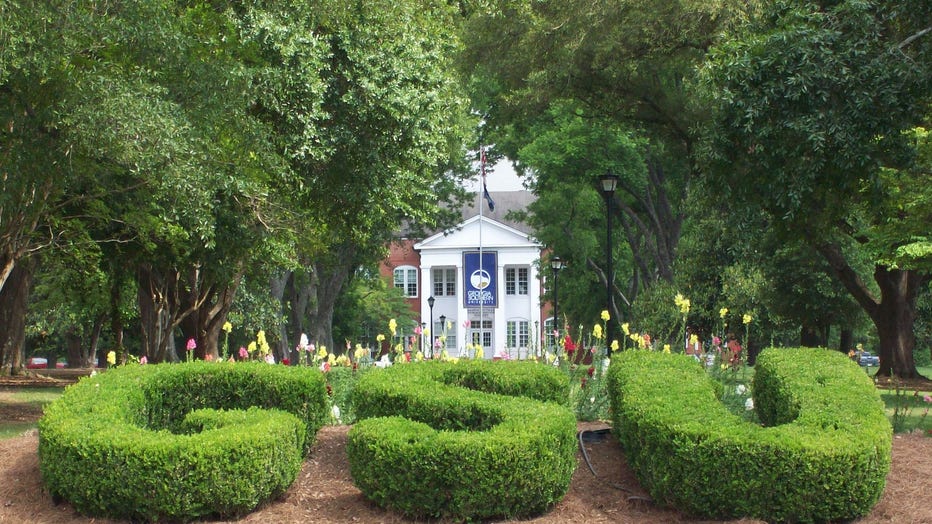Latina author's speech canceled after Georgia Southern students burn book
STATESBORO, Ga. - An author's second appearance at a Georgia university was canceled after a few students burned copies of her book following an angry exchange during her first talk, which focused on diversity.
Jennine Capo Crucet spoke Wednesday at Georgia Southern University in Statesboro. Freshmen were assigned to read her novel "Make Your Home Among Strangers," which deals in part with a young Cuban-American woman's struggle to adapt when she enrolls at an elite northeastern college. The assigning of a book for all freshmen to read and discuss is a common feature at many colleges.

In a statement Friday, Crucet said she was asked to give a talk on diversity and the college experience, saying she read from an essay on that subject in her recently published collection "My Time Among the Whites." The daughter of Cuban refugees, Crucet grew up in south Florida and went on to attend Cornell University. She later became a professor at the University of Nebraska, and has won acclaim for her short stories and other work.
While taking questions, Crucet writes that "a white student questioned whether I had the authority to address issues of race and white privilege on campus." About 60% of Georgia Southern's 26,000 students described themselves as white last fall.
The university's student newspaper, The George-Anne, reports an unnamed student told Crucet while she was taking questions before the freshman audience that "I noticed that you made a lot of generalizations about the majority of white people being privileged. What makes you believe that it's OK to come to a college campus, like this, when we are supposed to be promoting diversity on this campus, which is what we're taught. I don't understand what the purpose of this was."
Crucet wrote Wednesday on Twitter that the exchange included "aggressive and ignorant" comments. She later said it ended with students shouting at each other across the auditorium. She said questions continued "with other students apologizing for the strangeness and rudeness they felt their peer had shown." Crucet later signed books after the event ended.
But that wasn't the end of the conflict. A video posted online shows some students later Wednesday burning copies of Crucet's book in a dormitory barbecue grill. A since-deleted Twitter account also showed a picture of the novel with its pages torn out.
Crucet said university employees moved her Wednesday from her Statesboro hotel to a hotel in another town.
The author had been scheduled to give a similar talk Thursday on Georgia Southern's Savannah campus.
Georgia Southern spokeswoman Jennifer Wise said Crucet canceled the second appearance, but Crucet wrote on Twitter Thursday that the event was canceled because "the administration said they could not guarantee my safety or the safety of its students on campus because of open carry laws."
A 2017 Georgia law lets people with a state concealed-weapons permit carry guns on parts of public college campuses.
Wise said Friday that university officials don't plan to discipline the students. University President Kyle Marrero sent an email to faculty, staff, and students, saying that "while it's within the students' First Amendment rights, book burning does not align with Georgia Southern's values nor does it encourage the civil discourse and debate of ideas."
"Yes, I wish our students had engaged in a reasoned discussion," Marrero wrote on Friday. "And yes, I wish these discussions had not deteriorated or led to broad generalizations that paint an ugly picture about our university."
Some faculty groups were more critical.
"We assert that destructive and threatening acts do not reflect the values of Georgia Southern University," wrote Russell Willerton, chair of the Department of Writing and Linguistics, in a statement released on behalf of his department.
Crucet said "nothing close" to what happened at Georgia Southern has happened at other colleges where she's given the same talk. She wrote that she fears for outsider students at Georgia Southern and called on the university to support them.
"To think of those students watching as a group of their peers burned that story - effectively erasing them on the campus they are expected to think of as a safe space - feels devastating."

